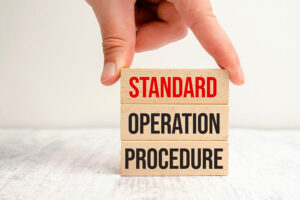While advancing online technologies continue to streamline business processes and expand operational capabilities, they’re also urging SME’s to adapt to the newest solution. Knowing when and what to change can be a challenge, which is one reason why SME’s need their MSP’s to also be their strategic technology partner.
Integrating Cloud-Based Applications
Small to medium-sized enterprises (SME’s) come in many sizes and types, yet all have IT infrastructure running their business. Before cloud and mobile computing solutions became widely available, on-premise enterprise systems and applications were the norms.
The new norm for SMEs is a hybrid enterprise system, which uses some proprietary hardware and software solutions mixed with cloud-based software solutions. Bring your own device (BYOD) policies have further added to the number of applications and systems that need to be managed in one workplace.
The rise of cloud-based services for businesses has been a game-changer for many industries, including in the MSP realm. Since the 1990s, MSP’s have focused on remote monitoring and managing on-premises IT infrastructures; emerging cloud-based services and value-added resellers (VAR’s) are now sparking competition and asking MSP’s to expand their services.
As a TechTarget article: managed service provider (MSP), explains:
“Another challenge MSPs face is the mainstream adoption of cloud computing. As more of their customers’ IT infrastructure components migrate to the cloud, MSPs have to find ways to manage hybrid cloud environments. MSPs also seek to provide their own cloud computing services or resell other cloud providers’ capabilities, with cloud-based backup and disaster recovery (DR) a common entry point.”
An article on MSP Insights called, Five Trends To Impact Managed Service Providers in 2018, written in 2017, elaborates with numbers:
“…Growth in cloud computing: A recent report by IDC indicates that ‘Worldwide spending on public cloud services and infrastructure is forecast to reach $266B in 2021. The cloud computing market is expected to achieve a five-year compound annual growth rate (CAGR) of 21.0% and the public cloud services spending will reach $128B in 2017, an increase of 25.4% over 2016.'”
Integrating cloud-based applications into enterprise systems is something SME’s are doing to streamline their operations and boost their bottom line, yet do they have the expertise and support to manage these applications with effectiveness and efficiency?
For most SMEs, the answer is often no, which is why MSP’s are adapting their services to become strategic technology partners (STPs) and CIOs for their SME clients.
Transitioning Enterprise Systems
As enterprise systems transition from solely on-premises to cloud-based hybrid systems, their IT infrastructure inevitably becomes more complex. With multiple vendors to coordinate with, IT departments can quickly become disorganized and stretched thin.
With limited IT resources, SMEs can augment their staff by using an MSP as their STP. The MSP’s expertise and experience with technology will help guide and direct businesses in the right direction. The MSP can be hired as the business’s CIO, which provides effective leadership when transitioning enterprise systems.
Unbiased Assessment of Vendors
While cloud-based software vendors offer their own support, they don’t have an encompassing and unbiased view of the business’s entire IT infrastructure. This means IT teams for SME’s are responsible for achieving streamlined interoperability and overall compatibility with disparate applications and systems.
Internal IT departments are also tasked with selecting and implementing new solutions into existing enterprise systems. For SME’s with limited IT departments, these tasks can easily become overwhelming, which can lead to continuity issues from undiscovered incompatibility.
What’s needed is an unbiased view from an IT expert that has the best interests of the SME in mind. Acting as a strategic IT partner, the outsourced MSP can help SMEs understand what each vendor’s service does and how it will fit within their overall IT infrastructure.
Consolidating support with unbiased expertise gives SMEs the knowledge to choose the applications and solutions that fit their needs. The vertical support offered by vendors can be used effectively when combined with the unbiased view of their STP, as this brings SME’s the clarity and understanding to move forward with confidence.
Expanded Expertise with Strategic IT Planning
SMEs are generally focused on managing sales, marketing, inventory, and customer service, which often means strategic IT planning isn’t developed to their advantage. Basically, non-tech businesses usually lack the expertise and experience to develop effective strategies with IT planning.
This is understandable considering how complex IT can be and how rapidly online technologies are developing. The temptation of not planning and sticking with outdated IT infrastructures is strong, yet this strategy can lead to security risks, falling behind competitors, and losing out on golden opportunities.
Basically, strategic IT planning is a necessary component for business growth and continuity. The more effective the IT strategy, the more streamlined and efficient enterprise systems will become. The only thing needed is a strategic technology partner to formulate, guide, and direct the plans to fruition.
Conclusion
MSPs have provided vital services to millions of businesses ever since IT infrastructures became ubiquitous within modern businesses. And according to a TechTarget infographic, 39% of SMBs are still “using managed services in some capacity”, which shows us how relevant their services still are.
The relevance of MSPs is changing as cloud-based SaaS, PaaS, WaaS applications become more prevalent within hybrid enterprise systems. Serving their clients now means offering cloud services and outsourced roles as a CIO and/or STP. These expanded roles are filling a vital need for SMEs with limited IT departments and expertise.
MSPs are in the perfect position to offer SMEs a holistic solution for their IT needs. While still monitoring, repairing, supporting, and managing on-premises enterprise systems, they can additionally offer their expertise and experience as an outsourced CIO and STP. Their unbiased view of vendors, their understanding of their client’s IT infrastructure, and their expertise and experience with technology in general, gives MSPs the unique ability to develop an effective strategic IT plan for each client.
To see how ServiceTree helps MSP’s address these challenges and capitalize on the vast opportunities, reach out today.





